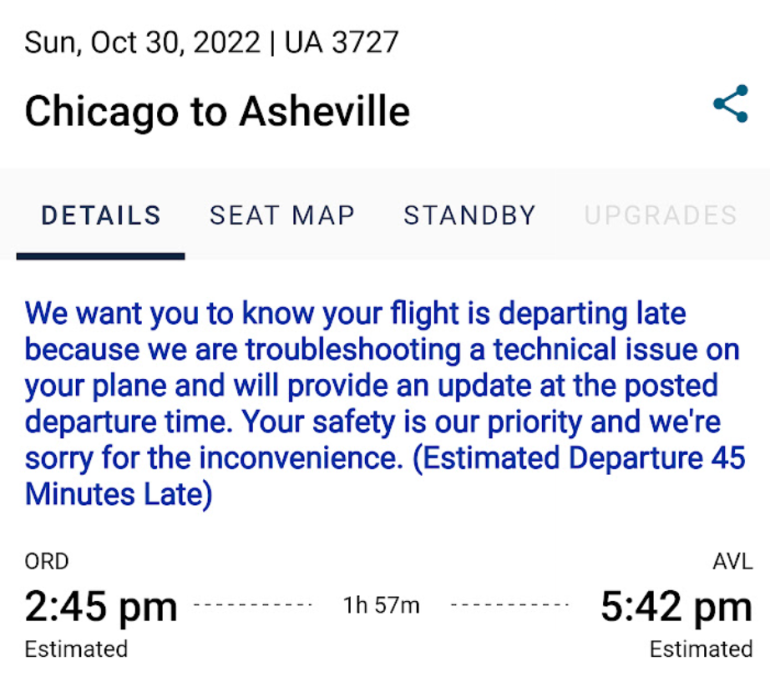January Jones, the celebrated actress, recently took to social media to vent her frustration over a 16-hour flight delay. Her bold message to the airline, urging them to "do better," has ignited a widespread conversation about customer service and accountability in the aviation world. This incident isn't just about one bad experience—it's a wake-up call for airlines to step up their game when it comes to treating passengers with respect and transparency.
We live in a world where air travel is more essential than ever. But when things go sideways, like with long delays, passengers often feel like they're at the mercy of airline rules and procedures. January Jones's situation is a perfect example of how real people are impacted by these kinds of disruptions. Her public critique reminds us all why empathy and clear communication are so crucial in customer relations.
In this article, we'll dive deep into January Jones's experience, break down how the airline responded, and explore the bigger picture of flight delays. By looking at the situation from different angles, we hope to give both travelers and industry insiders some valuable insights into how we can make air travel better for everyone.
Read also:Iradha The Rising Star You Need To Know About
Table of Contents
- Who Is January Jones?
- What Happened on the Flight?
- How Did the Airline React?
- Why Customer Experience Matters
- What Are the Standards for Handling Delays?
- Know Your Rights as a Passenger
- The Power of Social Media in Holding Airlines Accountable
- How Passenger Feedback Can Drive Change
- What the Future Holds for Airline Operations
- Final Thoughts
Who Is January Jones?
Early Life and Career
January Diane Jones was born on April 24, 1978, in Windsor, Connecticut. She's an American actress known for her incredible range and talent. Her big break came when she stepped into the role of Betty Draper in the iconic TV series "Mad Men," earning her a heap of awards and nominations. Before her acting career really took off, Jones was a successful model, gracing the covers of some of the world's most prestigious magazines.
Biodata
| Full Name | January Diane Jones |
|---|---|
| Birthdate | April 24, 1978 |
| Place of Birth | Windsor, Connecticut, USA |
| Profession | Actress |
| Notable Works | "Mad Men," "X-Men: First Class," "American Horror Story" |
Jones isn't just a star on the screen—she's also an advocate for important causes like consumer rights and environmental issues. Her decision to speak out about the airline's handling of her delay shows her commitment to using her platform for good. It's clear that she's not just an actress but a public figure who cares deeply about fairness and justice.
What Happened on the Flight?
It all started when January Jones's flight was delayed—not by a couple of hours, but an entire 16 hours. That's a long time to sit around waiting, especially when the airline didn't provide much in the way of updates or support. Frustrated and feeling unheard, Jones turned to social media to express her dissatisfaction. Her message, urging the airline to "do better," quickly went viral, sparking a larger conversation about the need for better customer service in the aviation industry.
How Did the Airline React?
Initial Actions
After the backlash from Jones's post, the airline issued a formal apology, acknowledging the inconvenience caused to passengers. But for many, including Jones herself, the apology felt hollow—like it wasn't heartfelt. The airline blamed operational challenges for the delay but didn't offer any concrete solutions to prevent similar situations in the future. It's one thing to say sorry, but it's another to show that you're actually committed to change.
Steps Toward Improvement
- Improving communication with passengers during delays
- Providing clearer guidelines on compensation and support
- Investing in technology to make scheduling and coordination smoother
These steps sound great on paper, but the real test will be whether the airline follows through. If they want to win back the trust of their customers, they'll need to focus on long-term solutions rather than just putting out fires as they come up.
Why Customer Experience Matters
In today's competitive aviation market, customer experience is everything. Passengers don't just want flights to be on time—they want to feel heard and understood when things don't go as planned. January Jones's post highlights just how important it is for airlines to prioritize passenger satisfaction. People are tired of being treated like numbers instead of individuals.
Read also:Revolutionize Your World With Iot Remote Connect Software
Key Factors in Customer Satisfaction
- Keeping passengers informed with timely and accurate updates
- Actively solving problems before they escalate
- Giving personalized attention to each passenger's unique needs
Airlines that focus on these areas are more likely to keep their customers happy and loyal. It's not just good for business—it's the right thing to do.
What Are the Standards for Handling Delays?
The aviation industry has set guidelines for dealing with flight delays, but how well airlines follow them can vary widely. According to the International Air Transport Association (IATA), airlines are supposed to keep passengers updated, offer accommodations, and provide compensation when there are significant delays. But do they always live up to these expectations? Not always.
Best Practices for Airlines
- Creating strong contingency plans for unexpected situations
- Training staff to handle tough scenarios with confidence and compassion
- Using technology to streamline operations and make things run smoother
By following these best practices, airlines can reduce the impact of delays on passengers and improve the overall quality of their service. It's all about being prepared and proactive.
Know Your Rights as a Passenger
When you're stuck on a delayed flight, it helps to know your legal rights. For instance, the European Union's Regulation 261/2004 says passengers are entitled to compensation if their flight is delayed by more than three hours, depending on the distance. In the U.S., the Department of Transportation requires airlines to provide essentials like food and water during tarmac delays that last longer than two hours.
Understanding Passenger Rights
Knowing your rights empowers you to stand up for yourself when things go wrong. Airlines need to make sure their staff is well-trained in these regulations so they can handle situations fairly and efficiently. It's not just about following the rules—it's about treating passengers with respect.
The Power of Social Media in Holding Airlines Accountable
Social media has completely changed the game when it comes to customer service. Platforms like Twitter and Instagram give passengers a megaphone to hold airlines accountable for their actions. January Jones's post is a great example of how influential voices can amplify concerns and push for change. Airlines need to recognize the power of social media and respond quickly and effectively to feedback and complaints.
Benefits of Social Media Engagement
- More transparency and accountability from airlines
- Stronger relationships with customers through direct communication
- Real-time problem-solving opportunities
By embracing social media as a tool for engagement, airlines can build stronger connections with their customers and tackle issues head-on. It's a win-win for everyone involved.
How Passenger Feedback Can Drive Change
Feedback from customers is one of the most valuable resources airlines have. Those that take the time to listen and act on passenger input are more likely to thrive in a competitive market. January Jones's feedback, though critical, offers the airline a chance to reevaluate its procedures and make meaningful improvements.
Implementing Feedback for Improvement
- Conducting regular surveys to gather passenger opinions
- Building feedback loops with frequent flyers to stay connected
- Collaborating with industry experts to refine policies and practices
When airlines prioritize customer feedback, they can create a more customer-focused approach to their operations. It's all about making passengers feel valued and heard.
What the Future Holds for Airline Operations
The aviation industry is constantly evolving, driven by new technologies and changing passenger expectations. To tackle issues like long delays, airlines need to invest in innovative solutions that boost efficiency and reliability. January Jones's callout is a reminder that airlines need to think ahead and adopt strategies that will keep them ahead of the curve.
Potential Innovations
- Using artificial intelligence to predict and prevent maintenance issues
- Implementing blockchain technology for secure and transparent operations
- Enhancing digital platforms to create seamless passenger experiences
These innovations have the potential to transform the industry, making flights smoother and travelers happier. The future is bright—if airlines are willing to embrace it.
Final Thoughts
January Jones's public critique of an airline after a 16-hour flight delay shines a spotlight on the urgent need for better customer service and accountability in the aviation industry. By examining the incident, exploring industry standards, and looking at potential solutions, we can gain a deeper understanding of the challenges faced by both passengers and airlines alike.
We'd love to hear your thoughts and experiences in the comments below. Feel free to check out other articles on our site for more insights into travel and aviation. Together, we can push for a more transparent and customer-focused approach to air travel. After all, it's not just about getting from point A to point B—it's about making the journey as smooth and pleasant as possible.


